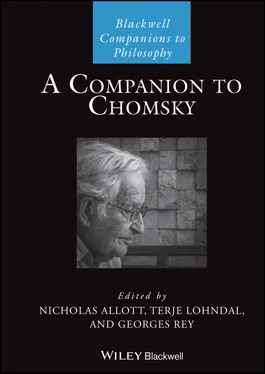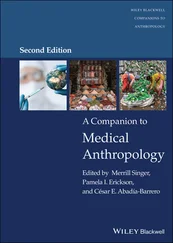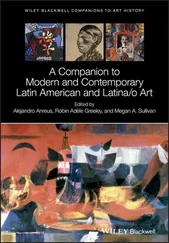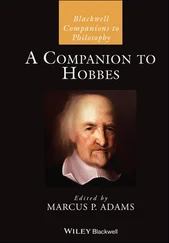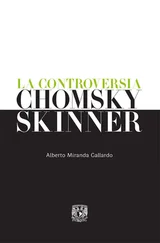A Companion to Chomsky
Здесь есть возможность читать онлайн «A Companion to Chomsky» — ознакомительный отрывок электронной книги совершенно бесплатно, а после прочтения отрывка купить полную версию. В некоторых случаях можно слушать аудио, скачать через торрент в формате fb2 и присутствует краткое содержание. Жанр: unrecognised, на английском языке. Описание произведения, (предисловие) а так же отзывы посетителей доступны на портале библиотеки ЛибКат.
- Название:A Companion to Chomsky
- Автор:
- Жанр:
- Год:неизвестен
- ISBN:нет данных
- Рейтинг книги:3 / 5. Голосов: 1
-
Избранное:Добавить в избранное
- Отзывы:
-
Ваша оценка:
- 60
- 1
- 2
- 3
- 4
- 5
A Companion to Chomsky: краткое содержание, описание и аннотация
Предлагаем к чтению аннотацию, описание, краткое содержание или предисловие (зависит от того, что написал сам автор книги «A Companion to Chomsky»). Если вы не нашли необходимую информацию о книге — напишите в комментариях, мы постараемся отыскать её.
Companion
Companion
A Companion to Chomsky
A Companion to Chomsky — читать онлайн ознакомительный отрывок
Ниже представлен текст книги, разбитый по страницам. Система сохранения места последней прочитанной страницы, позволяет с удобством читать онлайн бесплатно книгу «A Companion to Chomsky», без необходимости каждый раз заново искать на чём Вы остановились. Поставьте закладку, и сможете в любой момент перейти на страницу, на которой закончили чтение.
Интервал:
Закладка:
52 Zec, Draga. The syllable. In Paul de Lacy, editor, The Cambridge handbook of phonology. pages 161‐194. Cambridge University Press, 2007.
7 Language as a Branch of Psychology: Chomsky and Cognitive Science 1
LILA GLEITMAN
Professor Emerita in the Department of Psychology, University of Pennsylvania, Philadelphia, Pennsylvania
Editors' note: Lila Gleitman studied with Zellig Harris in the 1950s, shortly after Chomsky did, and then over the decades since has been a leading proponent of Chomsky's views in psychology, training many of its leading researchers in the field. Her work has been so important and influential in the development of those views there that she was the first person the editors of this volume turned to provide a perspective on that development.
Most of this chapter has been extracted from an article by Professors Gleitman, Mark Y. Liberman, Cynthia A. McLemore, and Barbara H. Partee, “The Impossibility of Language Acquisition (and How They Do It),” which appeared in the Annual Review of Linguistics 2019, 5:17.1–17.24 (online at clinguist.annualreviews.org). Those authors own the copyright, but have granted permission to the present editors to reproduce the portions included here.
Both that article and the present one consist of an autobiographical interview with Professor Gleitman: the style and first‐person voice throughout is hers, and the occasional interpolations in square‐brackets are those of her and the other authors (additions and interpolations in curly brackets are those of the present editors). The three opening paragraphs below and a new section 10 have been added by Professor Gleitman (Section 11 is the original's Section 10). To keep within the word limits, we have omitted the earlier article's Sections 5–9, except for their titles. Professor Gleitman especially thanks Cynthia McLemore, Sharon Armstong, Claire Gleitman, and Mark Liberman, whose aid was crucial in organizing the new material presented here.
*****************
Noam Chomsky, almost single‐handedly, exposed the bankruptcy of radical Behaviorism and its learning theoretic handmaiden, passive associationism, as the explanatory basis for human language learning and knowledge; for the opening discussion in this regard, see his {1959} “Review of Skinner's Verbal Behavior,” which appeared in the journal Language .
Initially, my own vague presupposition about language learning, in common with most scientists as well as laypersons of that time, was that language learning is at bottom an outside‐in procedure, a more or less straightforward function from what is heard to what is known. After all, exposed to English, the English learn English, and exposed to French, the French learn French. This truism accepted, the question remains how the young human mind records, manipulates, and organizes this database. Chomsky's insistence on understanding the class of problems here has played a major role in the emergence of the field now known as Cognitive Science.
Excerpted below is a section of an autobiographical description of the factors that led me from initial empiricist leanings to Chomsky's position emphasizing language as the pinnacle of human cognitive competence.
*****************
This autobiographical article, which began as an interview, reports some reflections by Lila Gleitman on the development of her thinking and her research – in concert with a host of esteemed collaborators over the years – on issues of language and mind, focusing on how language is acquired. Gleitman entered the field of linguistics as a student of Zellig Harris, and learned firsthand of Noam Chomsky's early work. She chose the psychological perspective, later helping to found the field of cognitive science; and with her husband and long‐term collaborator, Henry Gleitman, for over 50 years fostered a continuing research community aimed at answering questions such as: When language input to the child is restricted, what is left to explain language acquisition? The studies reported here find that argument structure encoded in the syntax is key (“syntactic bootstrapping”) and that children learn word meaning in epiphanies (“propose, but verify”).
7.1 Background
7.1.1 Graduate School
From the beginning of my graduate school days I was exposed to the best of the best among linguists: Zellig Harris and his greatest student, Noam Chomsky, who had just moved to MIT when we met. They represent, at least to my understanding, two opposed trends in the study of language and its learner‐users. Harris was the pinnacle of structuralists, {believing} that what you saw (rather: heard) was what you got, and to my mind is the father of “big data” analysis as it appears in the current computational and psychological literature. For him, the sole legitimate approach was relative‐distributional analysis, and his theoretical aim, in these terms, was to find mechanical procedures that moved theory from phoneme to morpheme, thence to phrase, thence to sentence, and finally to connected discourse (Harris 1951, 1952).
One obstacle to identifying principles of coherent discourse was that sentences with the same information content could have very different syntactic structures. {Chomsky's} big step toward a solution was to render all sentences in a normal or “kernel” form, removing optional variations in form and style while preserving content. The relations by which one could get to the kernel forms of sentences were what was first known as “transformations.” One might think of this bottom‐up analysis as a proposal about how language acquisition works. That's how I understood it, but certainly and emphatically not how Harris {did}. He disdained “psychologizing” and meant to describe “language,” rather than the activities or acquirers of such a system.
In my first year of graduate school with Harris, I concretized my own idiosyncratic understanding of the Harrisian point of view in a game – perhaps, more correctly, an evangelical demonstration – which I called The Great Verb Game. It was designed to show that one could recover a specific verb, or small cluster, just from an enumeration of the surface structures in which it appeared. I would think up some “mystery verb” and write it down, covering it. The “players” were to guess it from hearing, essentially, subcategorization frames. So, after a little instruction, the player hears/sees the frame N1 V N2 from N3 and is to come up with an example (say, take : John took candy from the baby ). Next the player was offered another such frame, understood to be a paraphrase or entailment of the first, maybe N1 V N3 from N2. Notice that take will not work in this second case ( John took the baby from the candy ); it won't preserve meaning or might even be ungrammatical. So the player revises her guess. After a couple more clue frames, such as N2 V from N3, and N1 V N2 and N3 (and if the players are smart undergraduates or other verbal whizzes), they come up with the (or a) verb that survives this winnowing‐down procedure (in the present case, separate ). Turning over my card, I now triumphantly show them “my” verb, hoping to convince them that the meanings are embedded in the structure in some way. In my first year or two as Harris's graduate student, I tried to formalize these ideas in terms of some derivational web (“chains of Harrisian transformations”), but this turned out to be a false step. In later years, however, these ill‐formulated but interesting ideas returned to me in the context of studies in word‐meaning acquisition, as I'll mention. But in my first years, this bit of verbal legerdemain so amused audiences that I think this is what caused Swarthmore College to give me my first job.
Читать дальшеИнтервал:
Закладка:
Похожие книги на «A Companion to Chomsky»
Представляем Вашему вниманию похожие книги на «A Companion to Chomsky» списком для выбора. Мы отобрали схожую по названию и смыслу литературу в надежде предоставить читателям больше вариантов отыскать новые, интересные, ещё непрочитанные произведения.
Обсуждение, отзывы о книге «A Companion to Chomsky» и просто собственные мнения читателей. Оставьте ваши комментарии, напишите, что Вы думаете о произведении, его смысле или главных героях. Укажите что конкретно понравилось, а что нет, и почему Вы так считаете.
